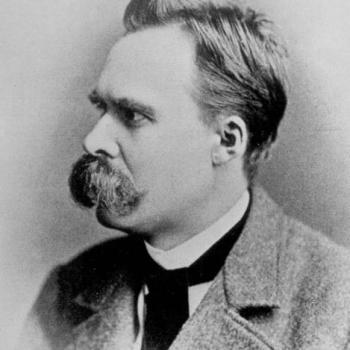Robert Stein, a conservative economist who served as deputy assistant secretary for macroeconomic analysis in George W. Bush's administration, says the tax code is unfair to one particular group of Americans: parents.
He says that parents invest thousands of dollars in raising members of society who eventually fund programs such as Social Security and Medicare, but retirees who chose not to raise children get the same old-age benefits as those who did.
“Once a country adopts an old-age pension system, it creates an implicit bias against raising children,” Stein said. “One of the natural reasons for raising children is not just because you like kids, but to take care of yourself in old age. Once a country gives everybody access to everyone else's kids' money, it undermines the natural economic incentive to raise kids.”
Under current law, parents with children get a $1,000 tax credit plus a tax exemption for each child, saving a typical middle-class family of four about $1,550 per child.
Stein would replace this system with a $4,000-per-child tax credit. That parental tax credit would be funded in part through Stein's other big idea: Simplify the personal income tax to two brackets — one that taxes 15 percent of income and the other 35 percent. He estimates that few people now in the 10 percent bracket would pay more if they move to 15 percent, because of the child exemption.
But he acknowledges that some people would be bumped up to the 35 percent tax rate, mainly upper-middle-class taxpayers who either didn't raise children or whose children have already left home.
“To be blunt, the plan is a tax hike on the rich and makes the tax code even more progressive than it is today,” he wrote in a recent piece in the conservative journal National Affairs.
The idea has not been debated among the GOP leadership in Congress, but it has generated criticism among conservative thinkers who say the government should not reward people for behavior that they might do anyway, such as having children.
Marriage insurance
Conservatives have long touted the importance of marriage. Bush even established a “Healthy Marriage Initiative” that created small federal grants for pilot programs to help couples strengthen their marriages. (That funding expires next year, and President Obama created a pilot program focused on fatherhood to replace it.)
Much of the energy from conservatives went to promoting marriage as a cultural virtue. But Bradford Wilcox, a professor of sociology at the University of Virginia, says that it is important to highlight the economic benefits of marriage.
The divorce rate among college-educated Americans has dropped since the 1980s, but the rate has increased among people without college degrees. This creates what he calls a “marriage gap” that denies lower-income people the advantages of marriage if they, for example, get laid off from their jobs.
“We need to appreciate that marriage is more than an emotional connection between two people,” Wilcox said. “There are kids; it’s a kind of economic cooperation, a form of social insurance.”
Wilcox says churches, the entertainment industry and other cultural institutions would have to embrace this view of marriage, not just the government. He proposes federal funding for public-service announcements and other social marketing to promote marriage, modeled on anti-smoking campaigns.
And to discourage divorce, he says, states should change marriage laws so spouses who are being divorced against their will and have not engaged in abuse or adultery would be given preferential treatment by family courts in determining alimony, child support and custody of children.
Eyeing entitlement programs
Rep. Paul Ryan (R-Wis.) wants to dramatically change Social Security and Medicare. He says that the country can’t afford the scheduled increases in benefits, and he proposes remaking the system for future beneficiaries while keeping the current benefits in place for people already 55 or older.
He would turn Medicare from a government-run program to one in which people get vouchers to buy private health insurance. The amount of the vouchers would depend on the health and age of the retiree but would grow at a slower rate than health spending, which could mean voucher recipients pay more out of pocket to buy insurance. Ryan says competition among private companies would drive down costs.
For Social Security, he would change the way benefits are calculated for upper-income beneficiaries, basing increases on inflation instead of increases in wages, which in the long term would mean lower benefits than under the current structure.
For Ryan, these changes are not only about balancing the budget. By reducing some benefits, recipients of government entitlement programs would be turned into consumers while the role of the federal government would be reduced. For instance, he would allow — as Bush proposed to much consternation from Democrats — younger workers to put some of the money they would pay in Social Security into individual investment accounts.
“Government increasingly dictates how Americans live their lives; they are not only wards of the state but also its subjects,” Ryan said. “Dependency drains individual character, which in turn weakens American society.”
Democrats have attacked Ryan’s plan as a shift toward privatization with which most Americans would be uncomfortable. Other conservative thinkers privately say his plans are so expansive that they would be politically toxic to propose in the near future.
via Conservative thinkers tout three innovative and controversial proposals.
Which of these would be good policies and which would be more government activism, though in a different direction?
















